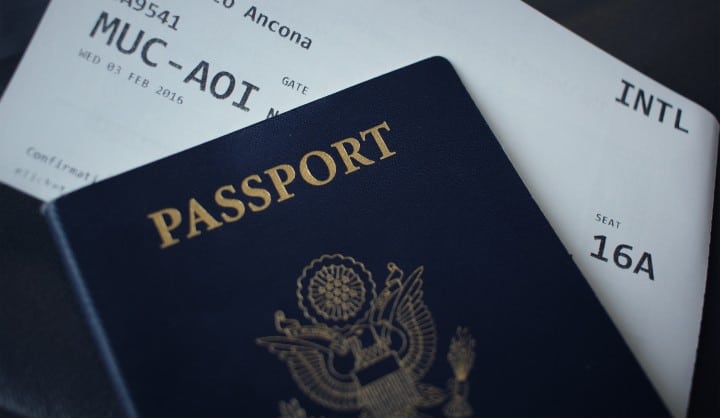As a Bangladeshi citizen, I am thrilled to learn that the cabinet has recently approved the proposal to allow dual citizenship for Bangladeshis in 101 other countries. This momentous decision expands the opportunities for Bangladeshis to hold citizenship in multiple countries and reap the benefits that come with it. Ref: [1][2]
The newly approved SRO (State Regulatory Order) allows Bangladeshis holding citizenship of different countries to get dual citizenship benefits.
The cabinet meeting, chaired by Prime Minister Sheikh Hasina, approved the proposal for dual citizenship benefits in a meeting on Monday.
Prior to this approval, Bangladeshi nationals could hold citizenship in only 57 countries. With the addition of 44 new countries, we can now hold citizenship in a total of 101 countries. This includes countries in Africa, South America, the Caribbean region, and Oceania. It’s a remarkable achievement that will undoubtedly make life easier for many Bangladeshis living abroad.

It’s worth noting that this approval comes with some conditions. For instance, not all countries allow for dual citizenship, and some may have specific requirements to obtain it. Therefore, it’s essential to do thorough research and understand the regulations before applying.
Current Citizenship Laws in Bangladesh
In Bangladesh, citizenship is regulated by the Citizenship Act of 1951 and the Bangladesh Citizenship Rules of 1952. According to the act, there are three ways to acquire citizenship: by birth, by descent, and by naturalization. Currently, the citizenship laws of Bangladesh are governed by the Bangladesh Citizenship (Temporary Provisions) Order 1972 and its accompanying rules. To obtain dual citizenship, a person of Bangladeshi origin must follow prescribed procedures as per the laws of Bangladesh. Furthermore, pursuant to Rules 4A or 4B of the Bangladesh Citizenship (Temporary Provisions) Rules 1978, a foreign trader, businessman, or entrepreneur may apply for permanent residency in Bangladesh.
– By birth, a person born in Bangladesh to at least one parent who is a citizen of Bangladesh at the time of birth will automatically be a citizen of Bangladesh.
– By descent, a person born outside of Bangladesh whose father or mother was a citizen of Bangladesh at the time of birth is eligible to acquire citizenship of Bangladesh.
– By naturalization, a foreigner who has been living in Bangladesh for at least five years continuously and meets certain criteria can apply for citizenship by naturalization.
Dual citizenship is not recognized under current Bangladeshi law, meaning that if a person acquires citizenship of another country, they will have to relinquish their Bangladeshi citizenship.
The Citizenship Act also outlines cases where citizenship can be revoked, such as fraud or false information in the citizenship application, conviction of certain crimes, and holding citizenship of a foreign country without permission from the Bangladeshi government.

Benefits of Having Dual Citizenship
Bangladesh also celebrates its 50-year partnership with the World Bank through a special event attended by Prime Minister Sheikh Hasina. [1][2]
As a global citizen, I strongly believe that holding dual citizenship is an important tool to have. It not only serves as an insurance policy in times of political or social turmoil but also provides numerous opportunities that would not be available with just one passport.
1. One of the most significant benefits of dual citizenship is the ability to reduce tax obligations. For instance, as a US citizen, having a second passport can allow me to apply for the Foreign Earned Income Exclusion (FEIE) and exempt a portion of my income from US taxes.
2. Additionally, owning property in both countries becomes easier, and I can access social services and benefits offered by both nations.
3. Moreover, having dual nationality provides me with the freedom to choose the country I want to reside in and the ability to travel visa-free to more countries.
4. It also allows me to hold two passports, making travel and investment options more accessible. Thus, dual citizenship is an investment in one’s future and offers numerous benefits that should not be overlooked. [1][2]
Countries That Allow Dual Citizenship With Bangladesh
Previously, we could only be citizens of 57 countries, but with this new move by the government, 44 more countries have been added to the list. With this new development implemented by the government, a total of 101 countries are now recognized for citizenship. This expansion has brought a sense of relief and optimism to many individuals seeking citizenship, as they now have more options and opportunities available to them.

– Prior to the recent approval of the SRO, Bangladeshis were only allowed dual citizenship in 57 countries. However, expats in many other countries clamored for the same facility.
– Bangladeshi citizens can now hold dual citizenship in 44 additional countries. These countries include 19 in Africa, 12 in South America, 12 in the Caribbean region, and even Fiji in the Oceania region.
– The 19 African countries where Bangladeshi citizens can now hold dual citizenship are Egypt, South Africa, Kenya, Algeria, Sudan, Morocco, Ghana, Rwanda, Burundi, Tunisia, Sierra Leone, Libya, Congo, Liberia, Central African Republic, Eritrea, Gambia, Botswana, and Mauritius.
– The 12 South American countries where Bangladeshi citizens can now hold dual citizenship are Brazil, Bolivia, Colombia, Venezuela, Suriname, Argentina, Peru, Ecuador, Chile, Uruguay, Guyana, and Dominica.
– The 12 countries in the Caribbean region where Bangladeshi citizens are now allowed dual citizenship are Cuba, Dominican Republic, Haiti, Bahamas, Jamaica, Trinidad and Tobago, Saint Lucia, Barbados, Saint Vincent and the Grenadines, Grenada, and Saint Kitts.
So, which countries can we now be dual citizens of? Here’s a list of the 44 additional countries, along with their respective regions:
1. Egypt (Africa)
2. South Africa (Africa)
3. Kenya (Africa)
4. Algeria (Africa)
5. Sudan (Africa)
6. Morocco (Africa)
7. Ghana (Africa)
8. Rwanda (Africa)
9. Burundi (Africa)
10. Tunisia (Africa)
11. Sierra Leone (Africa)
12. Libya (Africa)
13. Congo (Africa)
14. Liberia (Africa)
15. Central African Republic (Africa)
16. Eritrea (Africa)
17. Gambia (Africa)
18. Botswana (Africa)
19. Mauritius (Africa)
20. Brazil (South America)
21. Bolivia (South America)
22. Colombia (South America)
23. Venezuela (South America)
24. Suriname (South America)
25. Argentina (South America)
26. Peru (South America)
27. Ecuador (South America)
28. Chile (South America)
29. Uruguay (South America)
30. Guyana (South America)
31. Cuba (Caribbean)
32. Dominican Republic (Caribbean)
33. Haiti (Caribbean)
34. Bahamas (Caribbean)
35. Jamaica (Caribbean)
36. Trinidad and Tobago (Caribbean)
37. Dominica (Caribbean)
38. Saint Lucia (Caribbean)
39. Barbados (Caribbean)
40. Saint Vincent and the Grenadines (Caribbean)
41. Grenada (Caribbean)
42. Saint Kitts and Nevis (Caribbean)
43. Fiji (Oceania)
44. Qatar
It’s excellent news for Bangladeshis residing in these countries or planning to move there in the future. Dual citizenship is an amazing opportunity that comes with a lot of perks, such as the ability to travel without visa restrictions. It also allows us to enjoy the social and economic benefits of the two countries.
I hope this list inspires you to explore the possibilities of holding dual citizenship and making the most of your roots and potential. Thank you to the government of Bangladesh for this much-welcomed decision. [1][2]
